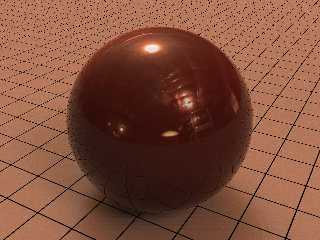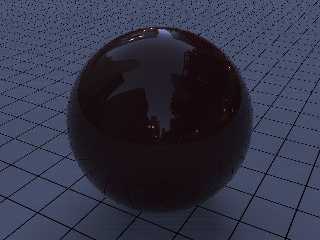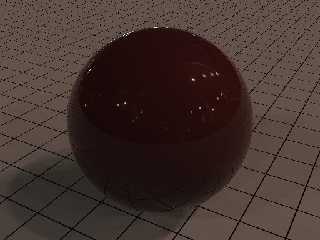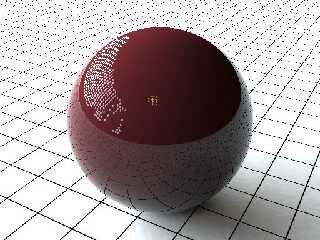|
 |
Nice
From what I can gather from your code, is the light spacing based on the x-y
coordinates of the un-wrapped HDRI? This may cause you problems with lights
close to the poles of the image as you would tend to get a higher density of
lights in these areas, which is why I tried to do a geodesic dome
configuration, to try to get a more even sampling around the dome. I do
like the supersampling idea, which I didn't try implementing. One thing
that you can do to help with the light brightness, is do 2 identical passes
so you can get a light count on the first one and adjust the lights
accordingly. BTW, I see you did get it macroed after all. I would like to
figure out some way to get better adaptive sampling. With larger sampling
spacing, you can miss smaller light sources and with finer sample spacing
you can get too many lights, depending on the threshold level. The random
super sampling probably helps a bit with this.
My macro if you are interested:
//start
#macro MapLight(n,R,Map,SS,BR,TH, LI)
#declare PIMAGE = function {pigment{image_map {hdr Map}}}
union{
#if (SS)
sphere{0 R*1.01
pigment {image_map {hdr MAP once interpolate 2 map_type 1} scale
<1,1,-1>}
finish {ambient BR diffuse 0}
}
#end
#declare nL=pow(2,(n-1));
#declare numL=0;
#declare MaxB=0;
#declare k=0; #while (k<=1)
#declare i=-nL; #while (i<=nL)
#declare nS=4*(nL-abs(i));
#declare j=0; #while (j<=nS)
#if (nS=0)
#declare xp=0;
#else
#declare xp=2*j/nS-1;
#end
#declare yp=i/nL/2;
#declare COL = PIMAGE(xp/2+0.5,yp+0.5,0);
#if (COL.gray > MaxB) #declare MaxB=COL.gray; #end
#if (COL.red>TH|COL.green>TH|COL.blue>TH)
#if (k=0)
#declare numL=numL+1;
#else
light_source{0 color (COL/numL)*LI fade_power 2
fade_distance R translate<0,0,-R> rotate x*i*90/nL rotate y*j*360/nS rotate
y*270}
#end
#end
#declare j=j+1; #end
#declare i=i+1; #end
#declare k=k+1; #end
#debug concat("NumLights:",str(numL,0,0),"/",str(2+pow(2,2*n),0,0),"
(",str(numL/(2+pow(2,2*n))*100,0,1),"%)\n")
#debug concat("MaxB-(",str(MaxB,0,3),")\n")
}
#end
//end
I attached a few more scnes samples as well.
In the last one, I removed the HDRI sky sphere and used visible light
sources instead to be able to see the distribution.
Post a reply to this message
Attachments:
Download 'HDRI2g.jpg' (81 KB)
Download 'HDRI2h.jpg' (59 KB)
Download 'HDRI2i.jpg' (38 KB)
Download 'HDRI2.jpg' (65 KB)
Preview of image 'HDRI2g.jpg'

Preview of image 'HDRI2h.jpg'

Preview of image 'HDRI2i.jpg'

Preview of image 'HDRI2.jpg'

|
 |




![]()